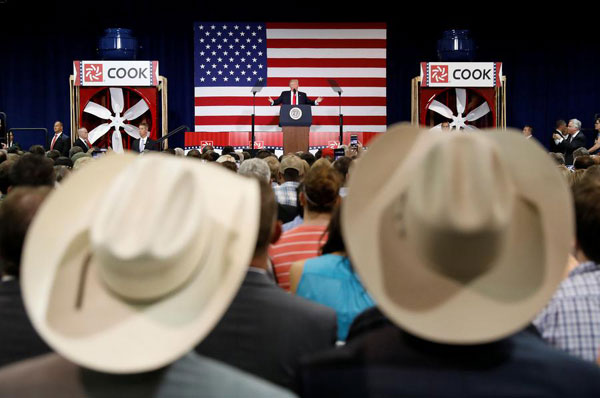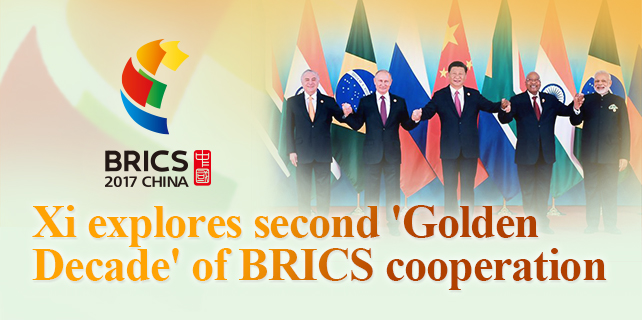US deficits prompt Trump to threaten global trade
 |
|
Supporters wearing cowboy hats listen as US President Donald Trump speaks about tax reform during a visit to Loren Cook Company in Springfield, Missouri, US, August 30, 2017. [Photo/Agencies] |
Ever earlier, Trump has threatened to withdraw from bilateral or multilateral free trade agreements. He has repeatedly threatened to terminate the North American Free Trade Agreement and clamored to use trade remedy measures to impose punitive tariffs on imports from major trade partners. He has ordered the Department of Commerce to investigate steel imports under Section 232 of the Trade Expansion Act of 1962, which allows the imposition of tariffs on imports for national security reasons. And he has directed the US Trade Representative to launch an investigation under Section 301 of the Trade Act of 1974 into China's laws, policies and practices related to technology transfer, intellectual property and innovation.
The US' huge trade deficits are certainly behind Trump's threats to withdraw from free trade agreements. For example, the US had a trade deficit of $17 billion in goods and services combined with the ROK last year despite having a $10.7 billion trade surplus in services.
By issuing such threats, Trump can cater to those white industrial workers in the US who formed a bulk of his electorate in last year's presidential election, but by carrying out such isolationist ideas in practice, the Trump administration could drag the entire world into a trade war. It could even ruin the chances of increasing jobs and incomes in the US, a promise that in all probability won Trump the presidency, because other economies are set to fight back.
The plain economic truth is that global trade improves the wellbeing of people-not necessarily all groups of people, though-in all countries. In the case of the US, globalization might not have been good for the low-end industries, but it has greatly benefited the advanced manufacturing and services sectors.
This should prompt the US administration to make some policy changes so that it can help those traditionally weak industries to improve their competitiveness and flourish in the globalized world. By pursuing the "America First" policy and coercing other countries to help the US to rewrite the trade rules in its favor, the Trump administration will only evoke firm opposition from countries, even its allies, which would not be conducive to global trade.






















